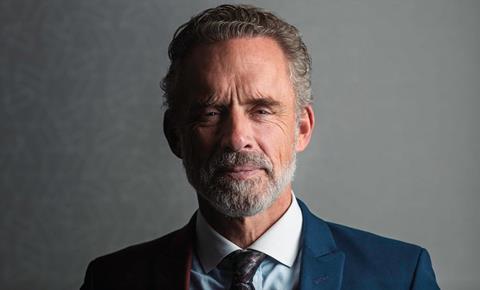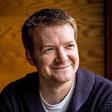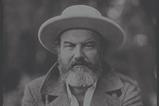Thousands flocked to London’s O2 arena to hear leading intellectuals including Jordan Peterson and Douglas Murray talk about everything from marriage to the meaning of life. Can a ‘faith-based’ approach to the culture wars help solve society’s problems? Justin Brierley reports

The last time I was at the O2 Arena was to see U2 play to a capacity crowd in 2018. That event was a theatrical extravaganza on steroids, with stage production and costume changes to rival any broadway show.
Seeing Jordan Peterson and his guests at the O2 last night (five minuscule figures from where I sat the back of the stadium) seated in a set of armchairs to discuss meaning, purpose and the state of the world was about as far from the spectacle of entertainment provided by U2 as you can imagine. This was no high-end theatrical production, but rather two and half hours of high-brow thought and unscripted conversations.
And yet, over 12,000 people had paid significant sums of money to come and watch Peterson, the rockstar of public intellectuals (along with panellists Douglas Murray, Jonathan Pageau, Bjorn Lomborg and special guest Ben Shapiro), waxing lyrical about everything from marriage, child psychology and climate change to what the book of Job tells us about the problem of suffering.
As Peterson took the stage to deliver his opening monologue he asked a question that I had been asking myself: “What are we all doing here?”.
Whether we reached an answer to that question over the rest of the evening may depend on who you ask.
All Aboard The ARC?
On arriving at the O2 I shared a video on my social media of the queue to enter the venue and the large crowd inside the arena. But, for a moment, I hesitated to post it… Would my friends who disapprove of Jordan Peterson (and his discussion partners) think I was happily attending some sort of neo-Nazi, Trump-loving, incel-fest? Maybe. But if they do, I think they’ve got the wrong idea about what Jordan Peterson is actually about.
Interestingly, from what I could see, the crowd in attendance was fairly diverse in terms of age and ethnicity (certainly more so than the U2 gig). And the onstage conversation was marked by being relatively politically neutral in terms of what was said. No reference was made to the Israel/Gaza war until the end, and the mention of political figures and movements were notable by their absence. Even the issue of transgender only came up directly once.
Perhaps this attempt to steer a somewhat neutral line owed to that fact that this was not merely a Jordan Peterson lecture, but the capstone of the ARC conference, which had taken place over the previous 3 days at conference centre next door to the O2.
ARC (which stands for the Alliance of Responsible Citizens) is the brainchild of Peterson and some friends, and seems to have the aim of bringing together a coalition of socially conservative individuals and agencies concerned by what they see as the capture of culture by the progressive left and the catastrophism and resentment that often marks the Gen Z view of Western society.
The ARC conference consisted of various panel discussion and lectures from predominantly right-leaning thinkers, both with and without faith, looking for answers to the polarised and nihilistic turn of a throughly post-modern culture. A number of high profile Christians are involved in leading it. They seem to want to create a less political and more faith-based response to the culture wars.
How this ARC venture pans out remains to be seen, as Peterson himself admitted form the outset in his speech. His opening remarks followed his usual pattern of an intense, stream-of-consciousness style monologue delivered with barely a pause and no notes. His critics would describe it as rambling, but I was hooked. As seemed everyone else in attendance.
Peterson covered lots of ground - the relationship between husbands and wives, the importance of marriage, child psychology, what happens when resentment is allowed to fester, the danger of living a news cycle of catastrophism, how every individual is the locus of value and dignity afforded by the image of God, and why we need to be aiming ‘up’ towards God as the greatest thing in our hierarchy of values (more on that later).
Then came the sit-down conversation with his guests.
Jonathan Pageau
Jonathan Pagueau was the religious mystic of the group. An Eastern Orthodox Christian thinker who carves beautiful icons in his spare time, Pageau has led the way in popularising a symbolic view of the world and scripture. He has become one of Jordan Peterson’s favourite Christian thinkers as his theology maps so closely with Peterson’s view of the psychological value of scripture and religious tradition.
Pageau tended to frame questions theologically (and somewhat abstractly) frequently returning to the idea that all our relationships and commitments to ourselves, family, friends, local communities and institutions, the nation and world are nested within a hierarchy, with God at the top. In short I think he was saying that when we fix the relationships in front of us (“tidy your room” as Peterson puts it) we have a much better chance of the rest of our life and the world following suit.
Bjorn Lomborg
Bjorn Lomborg was the pragmatist on the panel. The president of the Copenhagen Consensus he’s well known as someone who believes that the climate crisis has been overplayed. He was present to talk about the practical things that could be done to make a difference to rates of childbirth mortality and levels of education and literacy in the developing world.
When Peterson and Pageau were at their most metaphysical, Lomborg (whose faith commitments I do not know, but assume is likely an agnostic) was keen to come back to the practical realities of making the world a better place. There was a short back and forth between him and Peterson on whether Lomborg could ground his admirable ethics without a belief in God, but he didn’t seem to bite.
Douglas Murray
Douglas Murray, author and associate editor of The Spectator was the most rhetorically gifted speaker on the panel. Whether or not you agree with his views, he possesses a certain intonation, a gravitas, that makes his audience lean in.
A self confessed ‘Christian atheist’, Murray spoke about the way Western culture with its liberal values and human rights, resembles a ‘cut flower’ - beautiful yet destined to wither without the Christian soil that once nurtured it. You only have to travel outside the West to see that these ideals are rare fruit, that could vanish one day, he said.
Murray was also the most political of the bunch. He told a story about the tech billionaire Peter Thiel speaking at Oxford University and being appalled that all the questions from the students revolved around identity politics, rather than how we can get to Mars or solve global poverty. He raised the night’s biggest applause when by quoting words to the effect of: “Our brightest minds used to work out how to fly us to the moon, now we’ve forgotten what a woman is.”
On a side note, Murray also quoted from CS Lewis, who he says he has been reading. Murray, like many agnostics of his ilk, seems to be moving towards some form of theism.
Ben Shapiro
A fourth and final panellist was introduced as a surprise guest in the last half hour of the conversation - Ben Shapiro. The founder of the Daily Wire is an orthodox Jew (he was wearing his skull cap), and a fiercely intelligent right wing pundit who can make mincemeat of most opponents in a debate. He was criminally underused, but that’s the nature of a panel discussion where everyone has lots to say. Shapiro spoke on the importance of living within a religious tradition, and was keen to point out that everyone, atheists included, live by a set of principles that ‘jump to’ faith. The survival mechanisms of evolution are not aimed at truth, he reminded us. So if you believe in objective truth, morality, goodness or beauty then you’re already living by faith.
Politically Incorrect
It may not have escaped your notice that this was a panel of five white men. I got the sense that this may have been an entirely deliberate move on Peterson’s part - an intentional snub to the established rules of diversity that govern most on-stage events these days. Having said that, the panel was diverse in other ways - four different nationalities were represented, Murray is gay, each had a different religious perspective (though an Islamic viewpoint was notably absent).
What united them all is their right-leaning / anti-woke sentiments. If the panel line up felt like a middle finger to political correctness, the event also felt like it frequently teetered on the edge of saying things that you aren’t supposed to say.
Questioning the catastrophism of the climate crisis was one of them. Lomborg was resolute that governmental money could be better spent making a much bigger difference to things that we can really change. The transgender issue was also referred to obliquely a couple of times.
But what stuck most in my mind as one of the most radical thoughts shared was Peterson’s championing of marriage. He spoke of the way in which marriage should be a relationship where the other person’s happiness comes to determine your own happiness. You are indistinguishable from each other in some sense (recalling the words of Genesis and Jesus words the two shall become one flesh). Peterson mentioned that he was specifically thinking of Christian marriage and the way it acts as a foundation stone for culture.
As someone who believes in the centrality of marriage and family I was thrilled to see an oft-maligned institution being defended so vigorously.
But I also have a criticism. By speaking so fervently about how marriage shapes us into more mature, fulfilled people, Peterson went so far as to almost make it sound as though anyone who did not get married and remained single, had somehow failed at life. This is almost certainly not what he meant, but it was an impression you could have been left with.
Where is God in all this?
Overall the event was filled with good advice. The five men on the stage seem to want to build something positive rather than merely wage a destructive culture war, and I was gratified to hear the biblical stories being taken seriously as a way to do that. As I have argued in my recent book and new podcast The Surprising Rebirth of Belief In God, God is back on the table in intellectual circles in way that couldn’t have been imagined only 15 years ago when new atheism was all the rage.
Yet, the God of Jordan Peterson still feels somewhat abstract. The devil is in the details. Is there really a God beyond time and space who has been made known to us in the person of Jesus Christ, and therefore demands the response of our whole lives? Or is God “the uppermost ideal in our value of hierarchies”? There is a difference.
Peterson’s main interpreter of scripture is Carl Jung, rather than the Holy Spirit, and that matters in the end. I was left wondering whether any of the 12,000+ crowd who were not already committed to Christ would be inspired to go away and seek God, or merely try to pull themselves up by their own psychological bootstraps.
The culture wars don’t need any more combatants on either side. We need truth, we need grace and we need love.
That’s why the focus on marriage both encouraged and rankled with me. Even a good thing, like marriage, can become an idol when it replaces God. I wished Peterson would have added that Jesus himself never married, and yet lived the most fulfilled life possible. Why? Because his life was consecrated to God. Singleness is not a failure when it is a vocation, a life with God at the centre.
This is what is most radical about Christianity. Not the Judeo-Christian ethic that has successfully shaped the West in many positive ways (as much as we can be thankful for that). Rather, the idea that every life, however poor or apparently unsuccessful in worldly terms, matters to a God who become poor and downtrodden himself. That we are all works of grace, and that every life finds significance, not by being a successful member of the human race, but by being made in the image of God. And that when we, however imperfectly, choose to put the God made known through Jesus at the centre of our life, it can turn even the most broken person into a story of grace.
It’s not that Peterson doesn’t recognise that. He told a beautiful story of a female client when he practised clinical psychology who was a failure by every metric of society - anxious, plain looking, incredibly shy, wracked with trauma for an abusive childhood and living on a hospital ward for those with mental health issues. And yet she had a dog she loved and wanted to help the others in her hospital unit to experience some measure of joy by taking them on walks with her dog. Peterson helped her to achieve this. These stories of the divine spark of grace possible in every single life is when Peterson is at his best, even when there’s some wonky theology being espoused too.
Telling The Truth
I don’t knew whether Peterson and his friends can make the kind of impact that ARC hopes to have on our culture. There are dangers here - such socially conservative movements can veer towards nationalism and tyrannies of their own. Peterson told us he is explicitly aware of that - and that ARC will never advocate for anything that cannot be accepted voluntarily.
stories of the divine spark of grace in every life is when Peterson is at his best
Overal I feel like they are asking all the right questions, but that the solutions must inevitably, go much deeper than a purely psychological take on the befits of religious traditions and stories of scripture. And, in the end, the will to implement the kind of big picture solutions to world poverty that Lomborg mentioned requires much more than a change of political allegiance - it will require a change of heart.
Douglas Murray and Peterson both chose to conclude their thoughts for the evening by telling the audience to “tell the truth”.
From the Old Testament command “Thou shalt not bear false witness” (Exodus 20:16), to the New Testament injunction that “the truth will set you free” (John 8:32), telling the truth is a deeply Christian principle. I agree with the concerns of the panellists that our culture is increasingly forcing us to embrace half truths and deceptions for the sake of an easy life. But scripture also enjoins us to speak that truth “in love” (Ephesians 4:13).
This is my hope for Peterson and all those aboard his ARC. The culture wars don’t need any more combatants on either side. We need truth, we need grace and we need love.
On leaving the event I bumped into a vicar friend who was wearing his dog collar. He told me that the event gave him a sense of hope. It gave me a sense of hope too. Not because of Peterson or the panel, but because it feels as though, despite everything happening in our world right now, God is up to something…






































3 Readers' comments